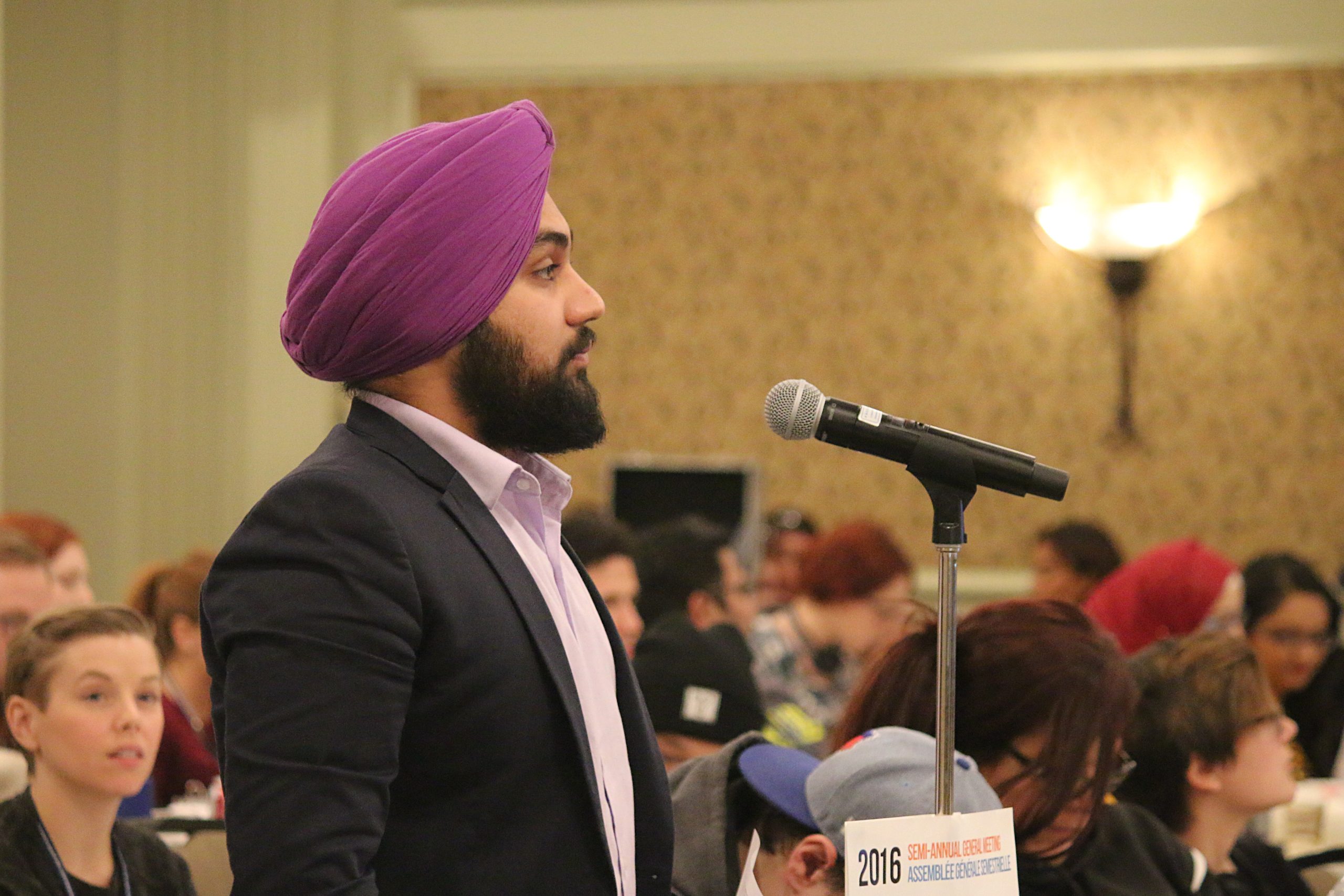Getting permanent residency ‘next to impossible’ since changes to program
Jatinder Maan, director of education for the Student Association (SA) at George Brown, which funds The Dialog, isn’t happy about how hard it is for international students to gain permanent residency (PR) in Canada after the rules were changed last year.
“There are thousands of students like me who were almost eligible for their PR but the previous government changed rules on January 1, 2015 and brought up this flawed express entry system.” said Maan. “Which not only restricts international students to apply for their PR but getting PR is next to impossible right now.”
Maan brought a motion to the recent provincial meeting of the Canadian Federation of Students—Ontario (CFS-O) calling on the federation to lobby the government to create a new category for international students and exempt them from the National Occupational Classification. It passed unanimously.
“The main benefit of being a part of CFS is that when you pass a motion at CFS then every school will write out letters. So you are not alone, there are 300,000 students supporting you.” said Maan.
In the current Express Entry system international students compete with other skilled workers for residency. Previously, international students were in a separate category.
“So we have moved from a system of certainty to uncertainty,” said Maan. “It’s like something is taken away from you.” Maan says that changing the new rules have made it really hard for international students like him to gain permanent residency.
Maan said he would be continue lobbying on this issue and has high hopes for Justin Trudeau’s government as he said during the election campaign that he would make it easier for international students to gain residency.
“The Express Entry system is favourable to international students and post-graduate work permit holders because they are awarded a significant number of points in the ranking system for their high education, Canadian work experience, strong official language skills and, more often than not, youth,” said Remi Lariviere, Media Relations for CIC.
“As of Nov. 2, 2015, 14.4 per cent of principal applicants who submitted an application for permanent residence previously held Post Graduate Work Permits, which suggests that a good proportion of former international students are being invited to apply for permanent residence under Express Entry.”
According to the Global Affairs Canada report 2012, international students spent $7.7 billion on tuition, accommodation and discretionary spending, created over 81,000 jobs, and generated more than $445 million to Canadian government in revenue.


